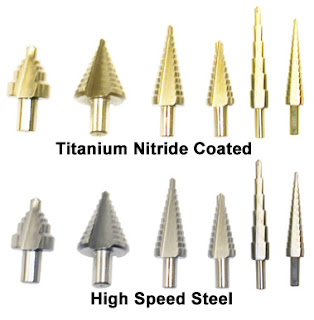Whenever you find that your home’s arsenal needs a tool for anchoring into cured concrete or in some other hardened metals, then you should buy a right drill bit for boring and reaming job. Here, you need a drilling tool which can be used on hardened materials. Carbide drill bit can make it possible, which is best suitable for high-production applications, and is widely used by locksmiths, auto mechanics or any operators for drilling into hardened materials.
The carbide itself has the quality of dissipating the heat, which makes it prone to damage. So, the drills made from this material can perform brilliantly on hardened steel. However, when you begin the drilling process, you should keep the speed of spindle slow. At a moderate pressure, this drill can bore accurate holes. However, you can cut the metals at high speed as well. It can also extend the life of the tool with its characteristic of hardness. However, it is rigid, but brittle also which can make it different in its own way.
This bit can be used where accuracy and rigidity matters. To maintain the lubricity and keep the bit cool, you should use some oil while drilling through. It is really a tough job finding the hardened steel. Bolts, screws, freeze plugs, bearing races, safes, shafts, gears, etc. are a few hardened steel.
It is brittle, hence generally used on the tip of the bit. You can use it in various production level applications. However, they are expensive, but you can make it your favorite drilling tool because of its long lifespan and durability. Its heat resistance capability makes it durable enough for enduring the high temperature, which in turn extends the life of the bit. Thus, the operational and maintenance cost becomes low. Thus, you can choose carbide tipped bit for a feasible solution, despite its expensive price tag.
The machine shops are flooded with several types of drill bits. You should pick the right type of bit for a right type of hole with proper finishing and accuracy. You can now shop them online as well at more reasonable rates. But, do a proper check for finding the reliability of stores.
The carbide itself has the quality of dissipating the heat, which makes it prone to damage. So, the drills made from this material can perform brilliantly on hardened steel. However, when you begin the drilling process, you should keep the speed of spindle slow. At a moderate pressure, this drill can bore accurate holes. However, you can cut the metals at high speed as well. It can also extend the life of the tool with its characteristic of hardness. However, it is rigid, but brittle also which can make it different in its own way.
This bit can be used where accuracy and rigidity matters. To maintain the lubricity and keep the bit cool, you should use some oil while drilling through. It is really a tough job finding the hardened steel. Bolts, screws, freeze plugs, bearing races, safes, shafts, gears, etc. are a few hardened steel.
It is brittle, hence generally used on the tip of the bit. You can use it in various production level applications. However, they are expensive, but you can make it your favorite drilling tool because of its long lifespan and durability. Its heat resistance capability makes it durable enough for enduring the high temperature, which in turn extends the life of the bit. Thus, the operational and maintenance cost becomes low. Thus, you can choose carbide tipped bit for a feasible solution, despite its expensive price tag.
The machine shops are flooded with several types of drill bits. You should pick the right type of bit for a right type of hole with proper finishing and accuracy. You can now shop them online as well at more reasonable rates. But, do a proper check for finding the reliability of stores.
